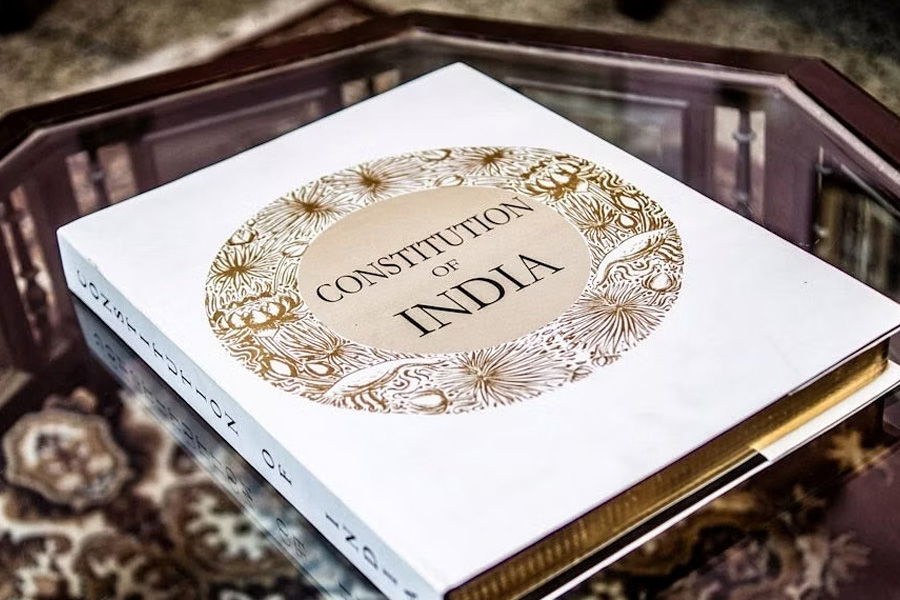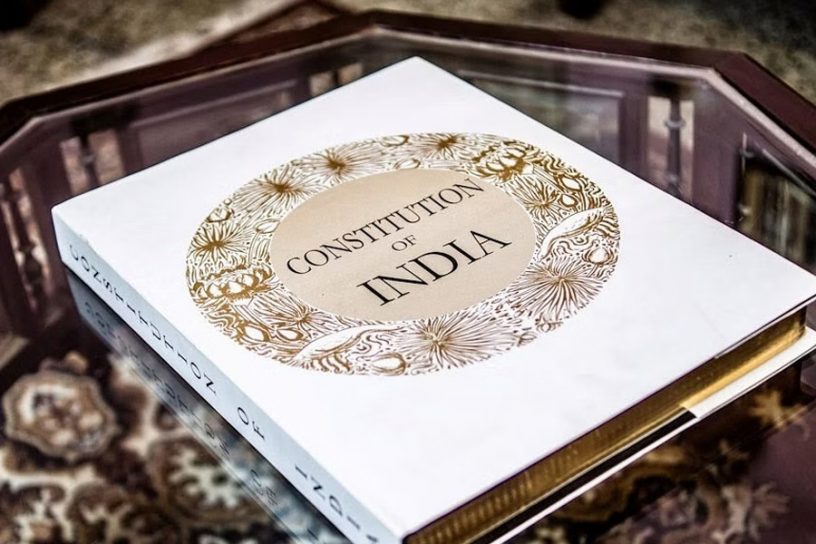
Through an assessment of how the word Constitution has been treated in judicial pronouncements and popular expressions, the author proposes to perceive it as a master signifier: a signifier that points to itself, one that quilts the field of signifiers.
Author
Dikshit Sarma Bhagabati, Student, Jindal Global Law School, O.P. Jindal Global University, Sonipat, Haryana, India.
Summary
Saul Kripke’s anti-descriptivist theory of naming construes proper names as “rigid designators” of the objects to which they refer. Modern iterations of the word “Constitution” generally denote a system of checks and balances on the arbitrary exercise of state power, loosely understood as constitutionalism. However, what Kripke overlooks is the idea that the rigidity of a name also derives from a surplus of meaning, as argued by Slavoj Zizek in keeping with the Lacanian tradition. Here, I attempt to show how this surplus is created and realised in the life course of the Indian Constitution. My significant argument is that the signifier Constitution need not always signify constitutionalism. Although constitutionalism bears an indelible nexus with the foundations of the Indian Constitution, it does not share a one-to-one relationship of signification with the Constitution.
Through an assessment of how the word Constitution has been treated in judicial pronouncements and popular expressions, I propose to perceive it as a master signifier: a signifier that points to itself, one that quilts the field of signifiers. This prompts me to show how the Constitution is sublimated to the level of what Lacan calls, borrowing the term from Freud, das Ding-the Thing. This kernel of desire, which is nothing but emptiness, must be continuously found and re-found, albeit it can never really be achieved. Thus arises the need to proclaim the Constitution frequently as an affirmation of rights, promoter of justice or, broadly, the fabric of an imagined Indian society.
In this process, the Constitution is raised to the “dignity of the Thing” through sublimation. This sublimation is predicated on silences that speak only through ideological anamorphosis: from the violence of the partition to the netherworld of the social unconscious where the promise of rights and liberties starts faltering. My aim here is to foreground the varied modalities of deciphering the Constitution, both semantic and affective. Public engagement with the Constitution, beyond and without the dictates of legal interpretation, finds meaning in ways that at once encompass and exceed modern constitutionalism.
Published in: Journal of Indian Law and Society
To read the full article, please click here.


